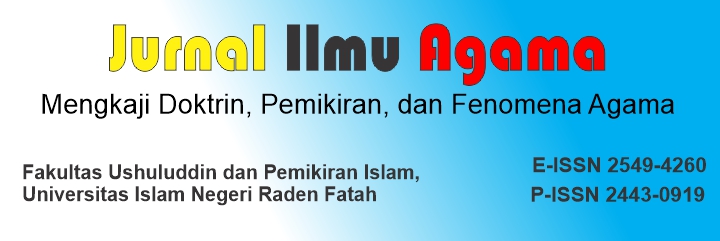SPRITUALITAS YESUS
Main Article Content
Abstract
Jesus has spiritual revolution but he is not a political revolutionist. He did not try to reform the ruler in his time. The revolution in the sense of Jesus was to lift up the God values in this time. It is called as the social revolution. The revolution means the social repentance in the context of social relation. Jesus as the man of weak Jewish society in the time hoped to get the freedom of the Rome tyranny. Jesus was chosen as the social and spiritual revolutionist as the mission from God as the mission that was love Allah in the deepest heart and soul, love the people and the selves.
Article Details
How to Cite
Fitriyana, Nur. “SPRITUALITAS YESUS”. Jurnal Ilmu Agama: Mengkaji Doktrin, Pemikiran, dan Fenomena Agama 18, no. 1 (June 30, 2017): 47–68. Accessed March 5, 2026. https://jurnal.radenfatah.ac.id/index.php/JIA/article/view/1532.
Section
Artikel
Authors who publish with this journal agree to the following terms:
- Authors retain copyright and grant the journal right of first publication with the work simultaneously licensed under a Creative Commons Attribution 4.0 International License that allows others to share the work with an acknowledgement of the work's authorship and initial publication in this journal.
- Authors are able to enter into separate, additional contractual arrangements for the non-exclusive distribution of the journal's published version of the work (e.g., post it to an institutional repository or publish it in a book), with an acknowledgement of its initial publication in this journal.
- Authors are permitted and encouraged to post their work online (e.g., in institutional repositories or on their website) prior to and during the submission process, as it can lead to productive exchanges, as well as earlier and greater citation of published work.
How to Cite
Fitriyana, Nur. “SPRITUALITAS YESUS”. Jurnal Ilmu Agama: Mengkaji Doktrin, Pemikiran, dan Fenomena Agama 18, no. 1 (June 30, 2017): 47–68. Accessed March 5, 2026. https://jurnal.radenfatah.ac.id/index.php/JIA/article/view/1532.

